Airlines got too confident, and now they are paying the price despite record-breaking travel
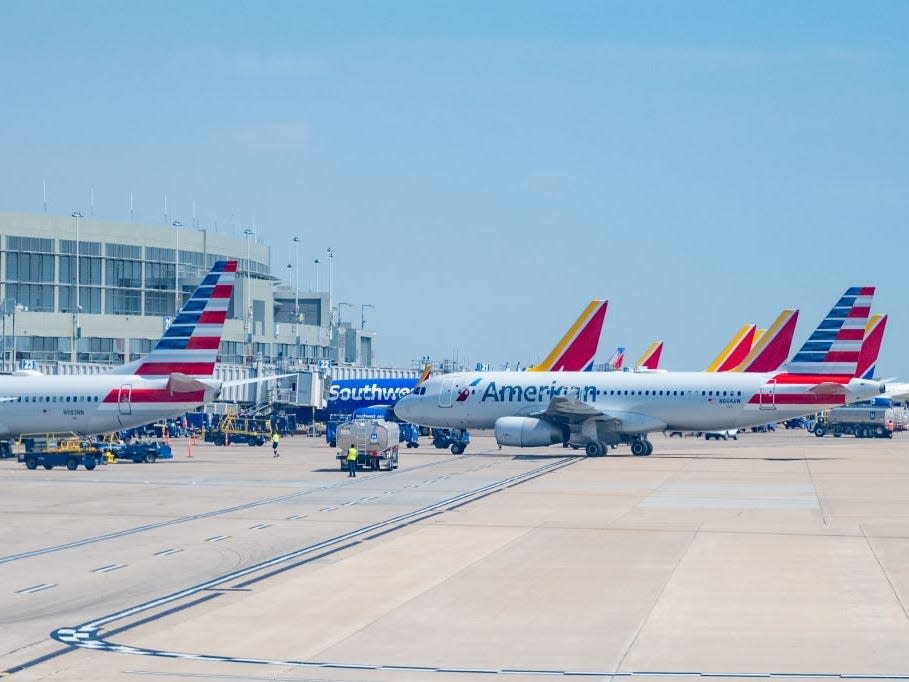
Despite booming travel, airlines are struggling to turn a profit.
Southwest expects seat-mile revenue will decline up to 4.5%, while American predicts up to 6%.
Experts blame fewer last-minute business travelers, overcapacity, Boeing delays, and inflated costs.
Making money in the airline industry has never been easy.
It's a capital-heavy business with the constant need to expand and innovate while simultaneously managing ever-changing demand and costs.
Expensive fuel, maintenance, and labor don't help, nor do unpredictable setbacks outside the airline's control, like pandemic travel bans and production slowdowns at planemaker Boeing.
Despite the challenging environment, 2024 is still set to see record-breaking passenger numbers, according to the International Air Transport Association, or IATA,
With so many people traveling, US airlines were poised for success. Some, like Delta, have found it. But across the industry, many airlines are struggling to turn profits thanks to issues like overcapacity, unrelenting competition, and unexpectedly high costs, according to experts.
Take Southwest, for example, which in June cut its forecasts and now expects revenue per seat mile — a key financial metric for airlines — to fall by up to 4.5% where it had previously expected 1.5% to 3.5%.
Before that, American in May warned it expected the same metric to fall by 5% to 6% compared to last year. Its earlier prediction was 1% to 3%.
Across the board, airlines have trailed the benchmark S&P 500 index with more debt than the average publicly traded company and thinner margins.
Airlines got overambitious with their expansion plans
Travel analyst Henry Harteveldt told Business Insider that thining margins are, in part, because airlines added too much to the market too fast amid confidence in the soaring demand and now can't sell all of those seats.
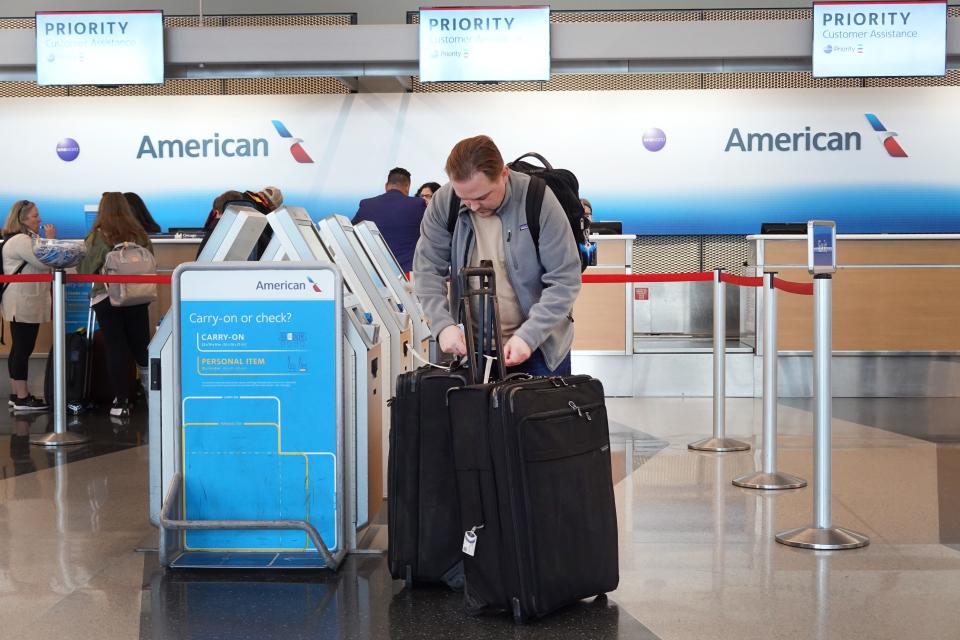
Reuters reported American hurt its pricing power after aggressive growth in its domestic market. The airline also missed out on revenue from corporate customers due to a flawed ticket sale strategy it has since admitted was a mistake to adopt.
"We're seeing softness in customer bookings relative to our expectations that we believe is in part due to the changes that we have made to our sales and distribution strategy," American CEO Robert Isom said during a May conference.
Southwest also cited its struggle to predict demand as part of its revenue problem. And, unlike ultra-low-cost carriers, Southwest doesn't charge extra for ancillaries like bags or seats — another missed revenue opportunity.
In fact, activist firm Elliott Investment Management recently pumped nearly $2 billion into Southwest, questioning strategies like its lack of add-on fees and calling for a board shake-up and the firing of Southwest CEO Bob Jordan.
Business travelers are booking fewer last-minute premium-priced tickets
Part of the industry's overcapacity problem is because lucrative business travel still hasn't completely rebounded since the pandemic, Harry Kraemer, former CFO and CEO of healthcare firm Baxter International, told BI.
Corporations aren't spending as much on last-minute business travel since the pandemic made Zoom and Google Meet more convenient.
"Half of the market is gone, and it's their highest margin," Kraemer said. "You've got all this excess capacity, and you've bought these planes, so what are you going to do with them."
Further, Harteveldt said companies have become more price-sensitive and are looking for cheaper options, noting ULCCs Frontier and Spirit are even getting business customers.
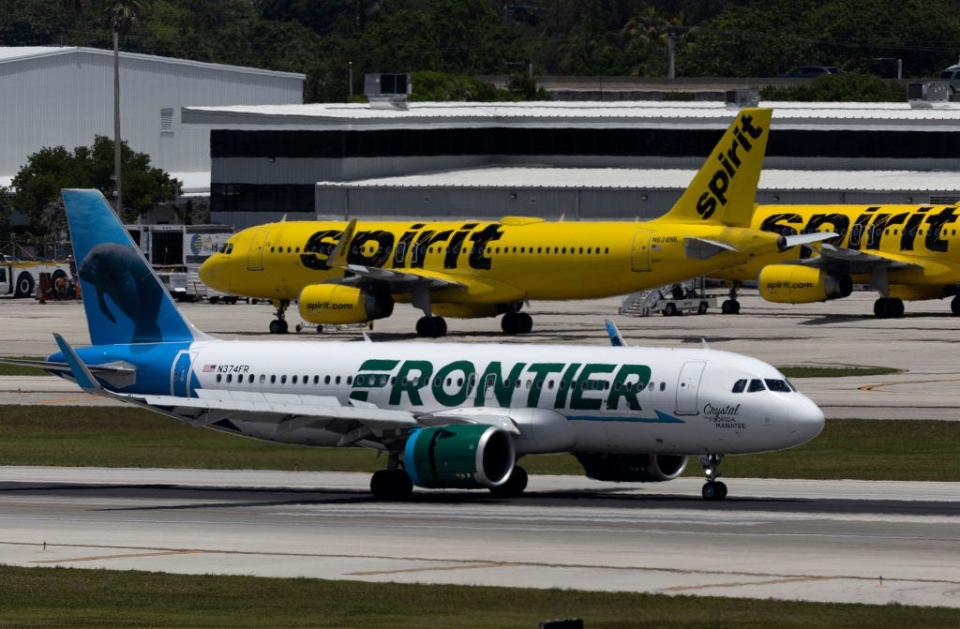
Over the past 12 months, shares of Spirit and Frontier have declined roughly 79% and 50%, respectively, far underperforming competitors and the market.
In an effort to boost revenue, they've changed their strategies to capitalize on the demand for more premium perks, such as dropping change and cancel fees and creating "business" class-like seats.
Boeing delivery delays have eaten into profits
Harteveldt said Boeing's ongoing delivery delays have cost airlines like American, Southwest, and United millions of dollars. This has forced them to adjust their planned flying, impacting revenue opportunities and flight availability.
He also said the lack of new planes means airlines are flying older ones for a longer time. The costs of maintenance and lesser efficiency can add up, and customers can't get access to the nicer amenities and reliability of newer jets.
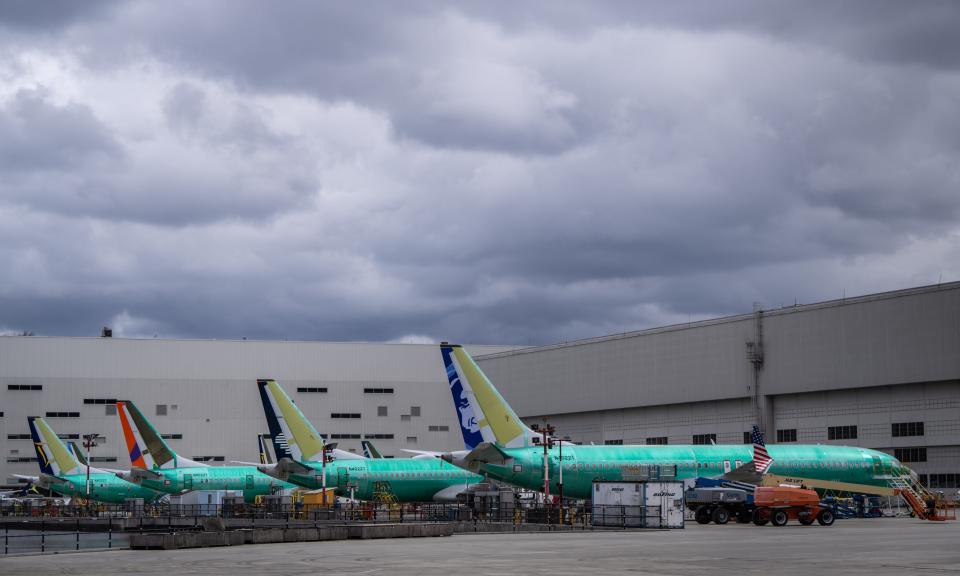
Airlines need to expand with new routes and planes, he said — it's the nature of the highly competitive industry.
However, Harteveldt noted these forced network shake-ups, like Southwest's exit from four airports, could be beneficial for better leveraging airline pricing power, as capacity can be brought back in line with demand.
"The airlines should find and serve routes that are the most profitable, and that means they may need to increase capacity in some markets and completely exit others," he said.
Low-cost competitor JetBlue Airways overhauled its network to stay above water after its failed merger with Spirit.
Harteveldt noted that Airbus is also facing production setbacks that are impacting deliveries and worrying investors, though not as dire as Boeing.
Airlines are plagued by high costs in an extremely competitive industry
Nearly everything is more expensive than it was before the pandemic, and airlines are no exception.
"It's the worst possible combination of high fixed costs and inflation on the variable costs," Kraemer said, pointing to costs like planes, labor, and fuel. "There are so many permanent changes like virtual meetings that airlines will need several years to adjust for."
Fuel costs in April were 33% higher than they were during the same time in 2019, according to the most recent report from the Bureau of Labor Statistics. Meanwhile, US airline pilots have gotten huge pay raises in recent years to help fend off a labor shortage.
For low-cost carriers like Frontier and Spirit, these high costs make it challenging to make money, Kraemer said. Still, they force competitor fares down — creating another profit obstacle for mainline carriers. IATA reported in June that industry ticket prices, including ancillary, are 15% below 2019 levels despite high growth.
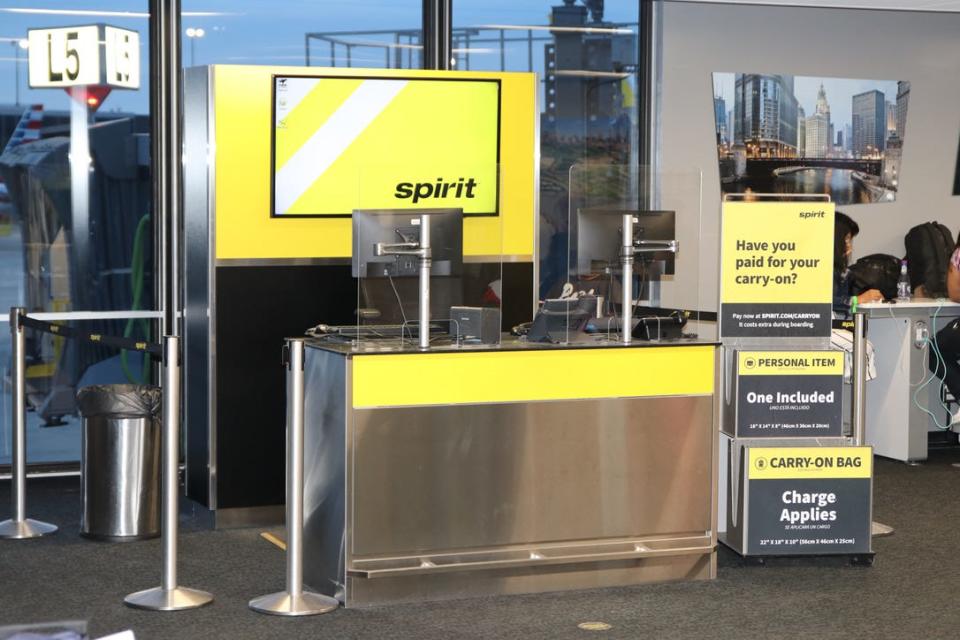
Harteveldt said beefing up revenue in any way possible is the best way to counteract the ever-growing costs.
"These days, it's less about having the lowest costs and more about generating the most revenue," he said, suggesting strategies such as charging for more ancillaries, reducing the number of discount tickets sold, or creating more enticing bundle packages.
Read the original article on Business Insider


